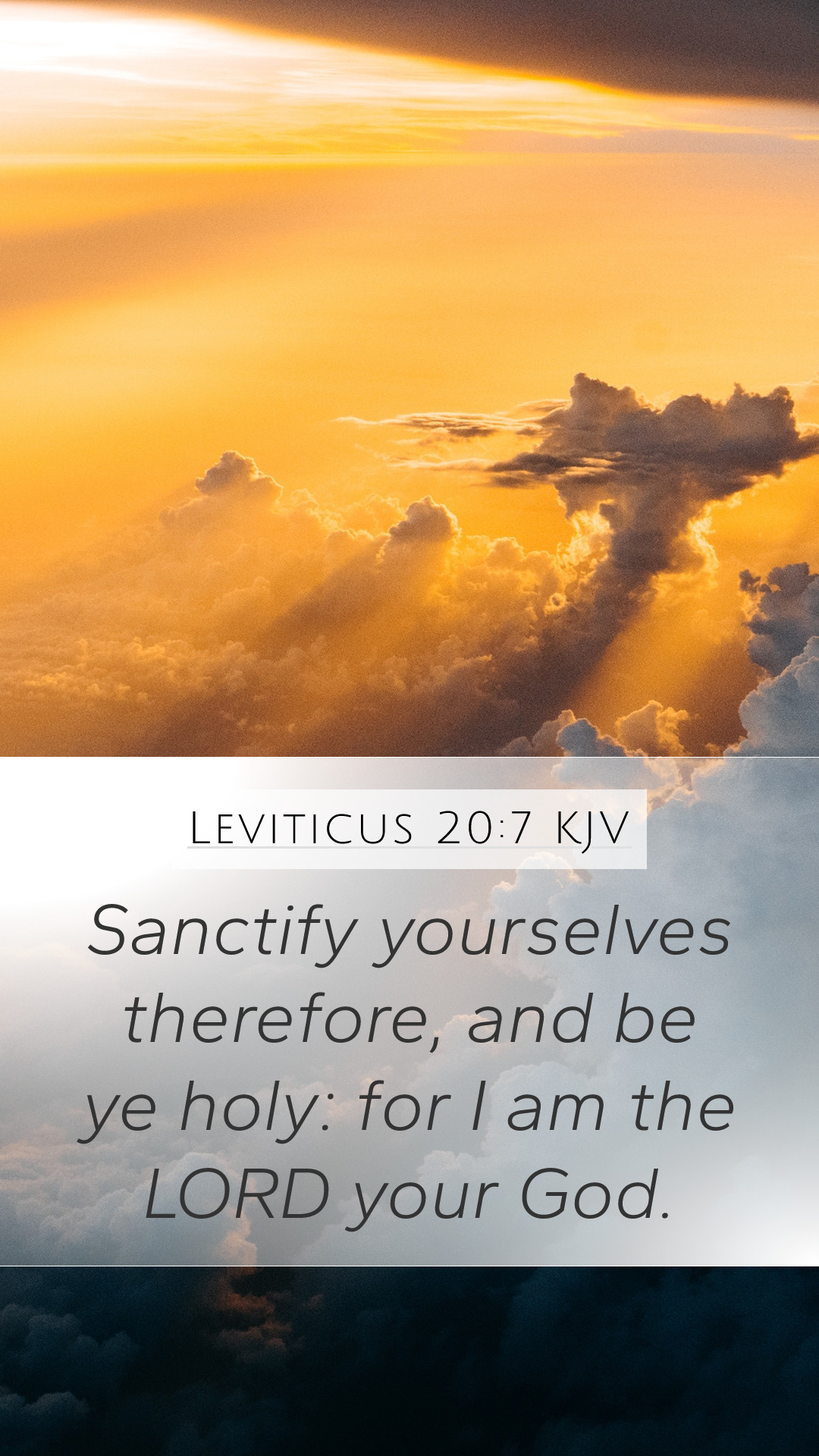Understanding Leviticus 20:7
Leviticus 20:7 states: "Sanctify yourselves therefore, and be ye holy: for I am the LORD your God." This verse calls for the people of Israel to separate themselves from the practices of surrounding nations and dedicate themselves wholly to God. Below is a combined interpretation from various public domain commentaries that delve into the meanings and implications of this command.
Overview of Leviticus 20:7
This verse is part of a section in Leviticus that outlines regulations for holiness and moral conduct among the Israelites. The call to sanctify oneself emphasizes the necessity for God's people to pursue holiness as a reflection of God's own nature.
Insights from Public Domain Commentaries
-
Matthew Henry’s Commentary:
Matthew Henry emphasizes the importance of personal holiness in the life of a believer. He explains that sanctification is not merely an external act but stems from a sincere intention of the heart to serve God. Henry highlights that just as God is holy, His people are called to exhibit holiness in their lives, which involves separating from sin and dedicating oneself to God's service.
-
Albert Barnes’ Notes:
Barnes reflects on the concept of holiness as being set apart for God's specific purposes. He interprets this command as a reminder that Israel's identity as God's chosen people comes with the responsibility of living according to God's standards. He also points out that the repetition of the phrase "for I am the LORD your God" reinforces the divine authority behind this call to holiness, establishing a direct connection between God's nature and expected human conduct.
-
Adam Clarke’s Commentary:
Clarke offers a historical context, noting that this command was particularly relevant considering the cultural practices prevalent in neighboring nations. He discusses how adhering to God's commandments differentiates Israel from others and serves as an essential aspect of their covenant relationship with God. Clarke also provides insight into the need for Israel to be examples to the nations, displaying how holiness leads to righteousness and divine favor.
Theological Implications
The overarching theme of Leviticus 20:7 is the call to holiness, which remains significant today. This verse invites contemporary readers to reflect on their own lives in relation to God's holiness. It emphasizes that holiness involves both internal transformation and external behavior.
Key Themes
- Sanctification: The act of setting oneself apart for God's purpose.
- Holiness: Reflecting the nature of God in daily living.
- Covenantal Relationship: Understanding the commitments involved in being God's people.
- Distinction from the World: Living differently from secular practices as a testimony to God's kingship.
Cross References
- 1 Peter 1:15-16 - Calls believers to be holy as God is holy.
- Romans 12:1-2 - Encourages not conforming to the world but being transformed.
- Exodus 19:6 - Declares Israel as a holy nation and a kingdom of priests.
Applications of Leviticus 20:7
In applying this verse today, individuals and communities can consider how they can pursue holiness amidst a secular culture. This involves introspection about one’s actions, attitudes, and overall lifestyle. Bible study groups can explore practical ways to embody sanctification, facilitating discussions on how to resist temptation and align one's life more fully with God's word.
Discussion Points for Bible Study Groups
- What does it mean to be holy in our current society?
- How can we actively practice sanctification in our daily lives?
- In what ways do we see cultural influences challenging our pursuit of holiness?
Conclusion
Leviticus 20:7 serves as a powerful reminder of the call to holiness that God imposes upon His people. Through understanding this verse and its implications, believers can align their lives more closely with God's desires, leading to a deeper relationship with Him and righteousness in their interactions with the world.


